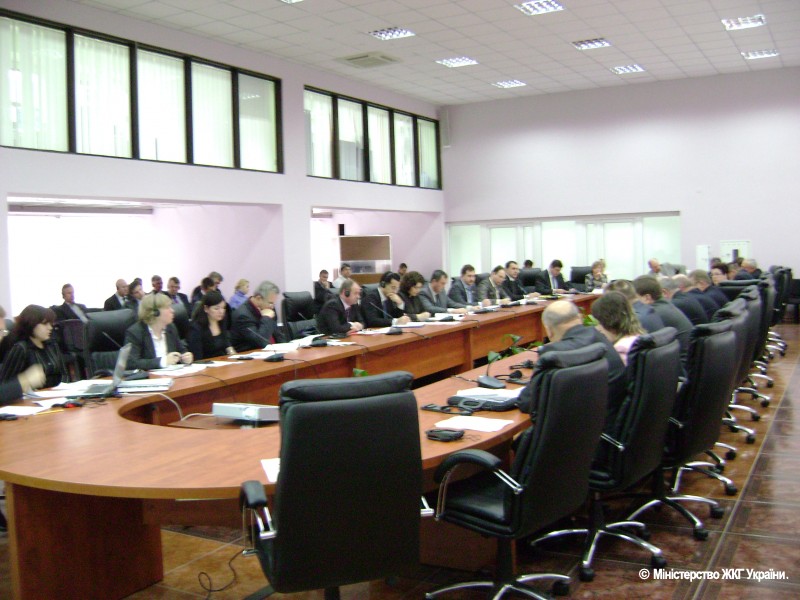DESPRO takes part in the National Dialogue on the development of water and wastewater services of Ukraine

On October 21 at the Ministry for Housing and Communal Services of Ukraine was held the second meeting of the Coordination Group for the National Policy Dialogue on the Water and Wastewater Services of Ukraine under the title: "Towards overcoming the negative consequences of the decentralization in the water and wastewater sector”.
First Deputy Minister Grygoriy Semchuk in his report examined the main problems in the water and wastewater industry caused by the process of the transfer of authorities from the central to the local self-government and presented a “roadmap” for the reform. In addition, he emphasized that the main purpose of the reform in the sector is to establish equal working conditions for all market participants of the water and sewerage economy of Ukraine regardless of the territorial affiliation and settlement size, along with the transition to a qualitatively new level of relations.
In Ukraine, according to the law, local self-governments of the villages, settlements and cities have the authority to make decisions on issues relevant to the water supply and wastewater, along with monitoring the quality of drinking water. Thus, decentralization of authority in the abovementioned sector is enshrined in the legislation by transferring responsibility from the state authorities to the local self-governments. However, there are substantial differences in how efficiently this process took place in the settlements with different sizes and level of social and economic development due to the uneven distribution of resources.
National dialogue was mutually enriched by the participation of the representatives of various international organizations, which supported deepening of decentralization in the area of water and sewerage economy (WSE) in their speeches. Vyacheslav Sorokovskyy, an expert on decentralisation of the Swiss-Ukrainian Decentralisation Support Project in Ukraine DESPRO, presented a model of decentralized water supply.
"In our opinion we can hardly talk about decentralisation in the WSE as a completed phenomenon, since the transfer of authority and responsibility to the local self-government in the area of WSE was not supported by the relevant financial and other political and legal mechanisms. Thus, the concept of decentralization in this area was not fully implemented. Therefore, we should rather discuss the negative consequences of the incomplete decentralization, than negative effects of decentralization", - underlined Vyacheslav Sorokovskyy.
According to the expert’s opinion, the above-mentioned outcomes most negatively affected the 14.5 million citizens of Ukraine, i.e. those living in the rural areas, while village councils were most vulnerable with respect to the imbalance between received authorities and available capacities.
According to the National Report on the quality of drinking water and the status of the drinking water supply in Ukraine in 2008, only 22% of the rural settlements have central water supply systems, even though the technical condition of the majority of these systems is rather poor. Low quality level of the rural water supply, inadequate capacities of the rural self-governments in organizing quality services, distancing of the village residents from the issues of local development, etc. present other factors that deepen the crisis in this area.
"The model of decentralized water supply in the rural areas supported by the DESPRO proves its effectiveness in the current socio-economic conditions and solves both short-term tasks (such as organization of the quality water supply services for the rural communities) and long-term tasks (i.e. community development, increasing capacity of the LSG, etc.)", - emphasized the project expert.
The “roadmap” of the reforms in the water and wastewater sector that contains tasks, measures and mechanisms for reform implementation was approved in the result of the meeting. The "roadmap" is developed for the period from October 2010 to December 2015.
According to the materials of the press service of the MinHCS


